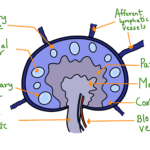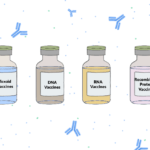Introduction:
Rare genetic disorders are a group of diseases caused by genetic mutations that affect a small percentage of the population. These conditions often present significant challenges for patients and their families due to limited treatment options and the absence of cures. However, recent advancements in the field of gene therapy have provided a glimmer of hope. Gene therapy, a promising approach that aims to correct the underlying genetic defects, has shown remarkable potential in the treatment of rare genetic disorders. In this blog post, we will explore the principles of gene therapy, recent breakthroughs, and the implications of this innovative approach for the future of personalized medicine.
1. Understanding Gene Therapy:
Gene therapy involves the delivery of functional genes to replace or correct faulty genes responsible for causing a particular genetic disorder. This therapeutic strategy aims to restore normal gene expression and halt the progression of the disease. Two primary approaches have emerged in the field of gene therapy: viral and non-viral delivery systems.
1.1 Viral delivery systems: Adeno-Associated Viruses (AAVs)
One of the most commonly used viral vectors in gene therapy research is adeno-associated viruses (AAVs). These non-pathogenic viruses have a high affinity for targeting specific tissues and are capable of long-term gene expression. AAVs have shown promising results in clinical trials for various rare genetic disorders, including spinal muscular atrophy (SMA) and Leber congenital amaurosis (LCA), a rare inherited retinal disease.
1.2 Non-viral delivery systems: CRISPR-Cas9
The revolutionary CRISPR-Cas9 system has revolutionized the field of gene editing and holds great promise for treating rare genetic disorders. By utilizing CRISPR-Cas9, scientists can precisely edit the DNA sequence and correct disease-causing mutations. This approach offers a potential cure for monogenic disorders, such as sickle cell disease and cystic fibrosis.
2. Recent Breakthroughs in Gene Therapy
Gene therapy has witnessed several remarkable breakthroughs in recent years, providing renewed hope for patients with rare genetic disorders.
2.1 Luxturna: Treating Inherited Blindness
Luxturna, an FDA-approved gene therapy, has transformed the lives of individuals with Leber congenital amaurosis, a rare inherited retinal disease. By delivering a functional copy of the RPE65 gene using AAVs, Luxturna successfully restores vision in patients who were once severely visually impaired.
2.2 Zolgensma: Overcoming Spinal Muscular Atrophy
Zolgensma, another groundbreaking gene therapy, has demonstrated significant success in treating spinal muscular atrophy (SMA), a devastating neuromuscular disorder. This therapy involves delivering a functional copy of the SMN1 gene to motor neurons, effectively halting disease progression and improving motor function.
3. Implications for the Future
Gene therapy holds immense promise for the treatment of rare genetic disorders and is expected to revolutionize the field of personalized medicine.
3.1 Targeting a Wide Range of Diseases
Gene therapy is not limited to a specific subset of rare genetic disorders. It has the potential to address a wide range of diseases caused by single gene mutations, including muscular dystrophies, lysosomal storage disorders, and hemophilia.
3.2 Advancing Precision Medicine
Gene therapy paves the way for personalized medicine, as it can be tailored to address specific genetic mutations unique to each patient. With the ability to precisely target and correct disease-causing mutations, gene therapy has the potential to become a cornerstone of individualized treatment approaches.
3.3 Challenges and Future Directions
Despite the remarkable progress, gene therapy faces certain challenges, including optimizing delivery methods, minimizing immune responses, and ensuring long-term safety. However, ongoing research and clinical trials continue to address these concerns and push the boundaries of what can be achieved with gene therapy.
Conclusion:
The promise of gene therapy for rare genetic disorders has ignited new hope in the field of medicine. Significant advancements in viral and non-viral delivery systems, as well as breakthrough treatments like Luxturna and Zolgensma, have demonstrated the potential for gene therapy to transform the lives of patients with rare genetic disorders. As researchers continue to refine the techniques and address challenges, gene therapy is poised to become a vital tool in the future of personalized medicine, offering new possibilities for treatment and potentially providing cures for once-incurable diseases.
Keywords:
gene therapy, rare genetic disorders, genetic diseases, genetic mutations, treatment, promising approach, clinical trials, adeno-associated viruses, CRISPR-Cas9, breakthrough, personalized medicine, genetic engineering



